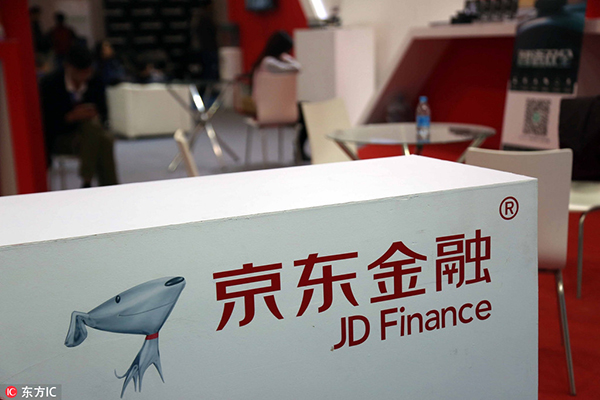JD confirms plans for banking license
 |
|
View of the stand of JD Finance of Chinese online retailer JD.com during an exhibition in Shanghai, Nov 4, 2016. [Photo/IC] |
JD.com Inc, China's second-biggest e-commerce player, confirmed on Friday it is carrying out work related to a banking license, in a move that would see it joining its tech counterparts in offering banking services.
The confirmation follows recent media reports which said the internet giant is willing to cooperate with a domestic traditional bank to open a direct bank, engaging in direct banking business as a separate legal entity.
A direct bank is a bank without any branch network that offers its services remotely via online banking and telephone banking and may also provide access via ATMs (often through interbank network alliances), mail and mobile.
JD on Friday did not deny the reports and would not disclose details.
A spokesperson told China Daily that it is carrying out work related to a bank license, to align with its strategic planning, and to meet its business development needs.
It is not the first time that internet companies have engaged in direct online banking in China. In January, internet search provider Baidu Inc and China CITIC Bank announced they had received approval from the China Banking Regulatory Commission in relation to the establishment of Baixin Bank, an online direct bank both companies had invested in.
CITIC will hold a 70 percent stake in Baixin and Baidu will have a 30 percent share.
In 2015, Alibaba Group Holding Ltd's financial arm, Ant Financial Services Group, launched an online private bank called MYbank, which focuses on providing financial services to small and micro businesses and young entrepreneurs.
Internet giant Tencent Holdings Ltd also launched an online bank called WeBank.
Dong Ximiao, executive president of the Hengfeng Bank Institute, said most of the domestic direct banks exist as an internal department of a bank, some even as a secondary unit affiliated to the e-banking department or personal finance department.
However, a direct bank should be a separate legal entity according to international practice, Dong said.















